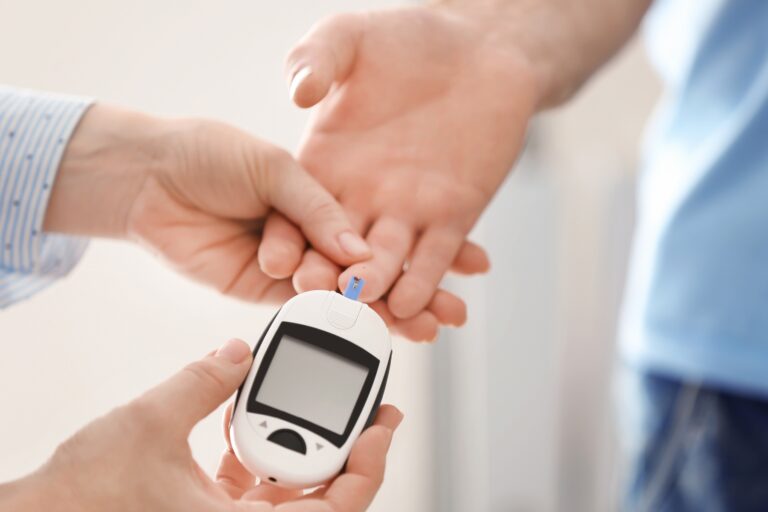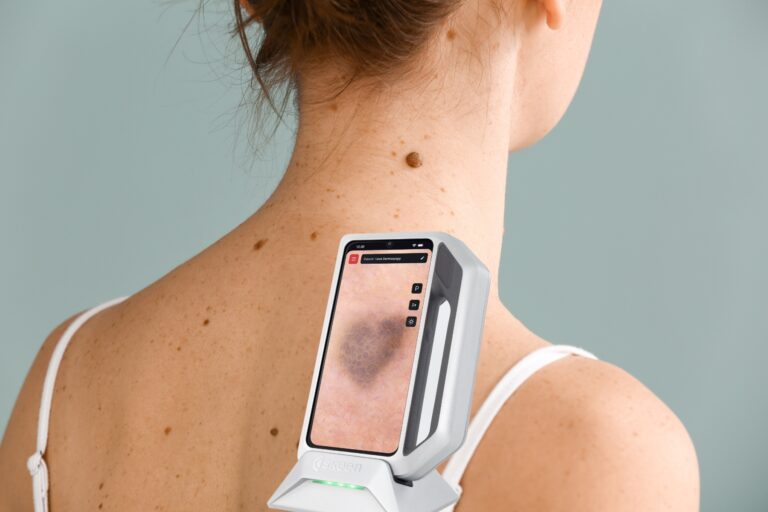FirstMed laboratory services include, but are not limited to:
- Arthritis diagnosis
- Blood testing
- COVID Testing
- Flu diagnosis
- Microscopies Full lab panels
- Mononucleosis diagnosis
- STD/STI Tests
- Urinalysis Drug testing
Result turnaround typically takes a few minutes to a couple of days depending on the test. We encourage you to contact us to take care of any tests that are weighing on your mind.
Before your test…
What should you do before a fasting laboratory test?
It’s the morning of your bloodwork and your doctor said to fast before the test. But your stomach is growling and you have serious caffeine withdrawal hours before you roll up your sleeve. A bite of toast and a few gulps of coffee won’t really make a difference, right?
Not so fast. Your results could come back wrong if you give in to temptation. Fasting means you don’t eat or drink anything but water, usually for 12 hours beforehand.
So, if your appointment is at 8 a.m. and you’re told to fast for 12 hours, only water is okay after 10 pm. You also shouldn’t smoke, chew gum (even sugarless), or exercise. These things can accelerate your digestion, and that can affect your results.
Take your prescription medications unless your doctor tells you to skip them. But ask your doctor before you take any over-the-counter drugs.
Blood tests help doctors check for certain health problems and find out how well your body is working. Doctors also use them to figure out how well treatments are working. You don’t need to fast before all blood tests. Your doctor will tell you if you need to.
Patient laboratory instructions
At FirstMed, we have skilled team of medical technicians who can run various types of tests ordered by your doctor.
Blood tests help doctors check for certain health problems and find out how well your body is working. Doctors also use them to figure out how well treatments are working. You don’t need to fast before all blood tests. Your doctor will tell you if you need to.
The following collection instructions are intended to help you collect the correct specimen for the test your clinician has requested. First read the instructions carefully, make sure you are prepared, and then follow each of the steps to ensure proper collection.
NOTE: You may be required to fast before having a blood test. This is because certain test values, for example blood sugar (glucose) change following the digestion of food.
Non-fasting specimens are acceptable for most situation requiring analysis of blood triglyceride levels, however some exceptions apply. Your doctor will determine if fasting is required for you.
These tests typically require fasting:
- Fasting blood glucose
- Lipid profile
- Basic or comprehensive metabolic panel is often part of a routine physical. The tests check your blood sugar, electrolyte and fluid balance, and kidney function. The comprehensive test checks your liver function, too.
- Renal function panel
- Vitamin B12 test
- Iron tests
- Gamma-glutamyl transferase (GGT)
- TSH : A TSH test is done to find out if your thyroid gland is working properly. It’s best to do this in the morning as your TSH levels can fluctuate throughout the day.
Instructions:
If you are asked to fast for your test do not eat anything for a minimum of:
- 8 hours for a fasting glucose/GTT or
- 12 hours for lipid assessment test before you go the laboratory to have your blood taken, if fasting is required.
Do not drink any juice, tea or coffee. You are allowed to drink water. Do not smoke, chew gum, or exercise. These activities may stimulate the digestive system and alter test results. After the specimen is collected, you may resume your normal diet.
Questions & Answers:
Q. Why do I have to be fasting?
A. Some test values change following the digestion of food. For example, if you eat lots of sugar, your blood
sugar will be high. When you are fasting, we get a base result that can be compared over time.
Q. May I drink water?
Yes, you can drink water but not other kinds of drinks.
Q. Should I continue to take my medications?
Yes, unless your doctor tells you not to.
Q. May I drink juice?
No, just water.
Q. May I drink coffee?
No, not even black without sugar, and the same goes for tea. You can drink water.
Q. May I chew gum?
No, not even sugarless. Gum stimulates your digestive system and can alter the test results.
Q. May I smoke?
No, smoking can affect the test results.
Q. May I do my exercise routine?
No, exercise can also affect test results.
Most people find it convenient to stop eating and drinking after 8:00 PM and to arrive at the laboratory early the next morning.
To collect a stool sample, label the container with your name, date of birth and the date.
COLLECTING A STOOL SAMPLE
- place something in the toilet to catch the stool, such as a potty or an empty plastic food container, or spread clean paper or plastic wrap over the rim of the toilet
- make sure the sample doesn’t touch the inside of the toilet
- use the spoon or spatula that comes with the container to place the sample in a clean screw-top container and screw the lid shut
- if you’ve been given a container, aim to fill around a half of it.
- put anything you used to collect the sample in a plastic bag, tie it up and put it the bin
- wash your hands thoroughly with soap and warm running water
STORING A STOOL SAMPLE
Stool samples should be handed in as soon as possible, as some can’t be analysed if they’ve been refrigerated – your doctor will tell you if this is the case.
If you can’t hand the stool sample in immediately, you should store it in a fridge, but for no longer than 24 hours. Place the container in a sealed plastic bag first.
Stool samples must be fresh – if they aren’t, the bacteria in them can multiply. This means the levels of bacteria in the stool sample won’t be the same as the levels of bacteria in your digestive system. If the levels of bacteria don’t match, the test results may not be accurate.
At FirstMed we can take the samples on workdays before 10 am.
What is a Fecal Occult Blood Test?
A fecal occult blood test (FOBT) looks at a sample of your stool (feces) to check for blood. Occult blood means that you can’t see it with the naked eye. Blood in the stool means there is likely some kind of bleeding in the digestive tract. It may be caused by a variety of conditions, including:
- Polyps
- Hemorrhoids
- Diverticulosis
- Ulcers
- Colitis, a type of inflammatory bowel disease
Blood in the stool may also be a sign of colorectal cancer, a type of cancer that starts in the colon or rectum. Colorectal cancer is the second leading cause of cancer-related deaths in the United States and the third most common cancer in men and in women. A fecal occult blood test is a screening test that may help find colorectal cancer early, when treatment is most effective.
INSTRUCTIONS
You will collect samples of your stool for 3 days in a row. This increases the chance of finding blood, since the bleeding may not happen every day. If you don’t have a bowel movement on one of the 3 days it is not a problem. you can collect the 3 samples over a longer period of time. You are given three plastic containers.
Collect a small amount of fecal matter from used toilet paper, the size of a large pea is enough, in the container and close lid firmly. Do not overfill collection vial.
You can store the samples for 3-5 days from the date of your first collection. Room temperature (preferred) or refrigerated.
Deliver the samples to FirstMed when all of the containers are filled.




